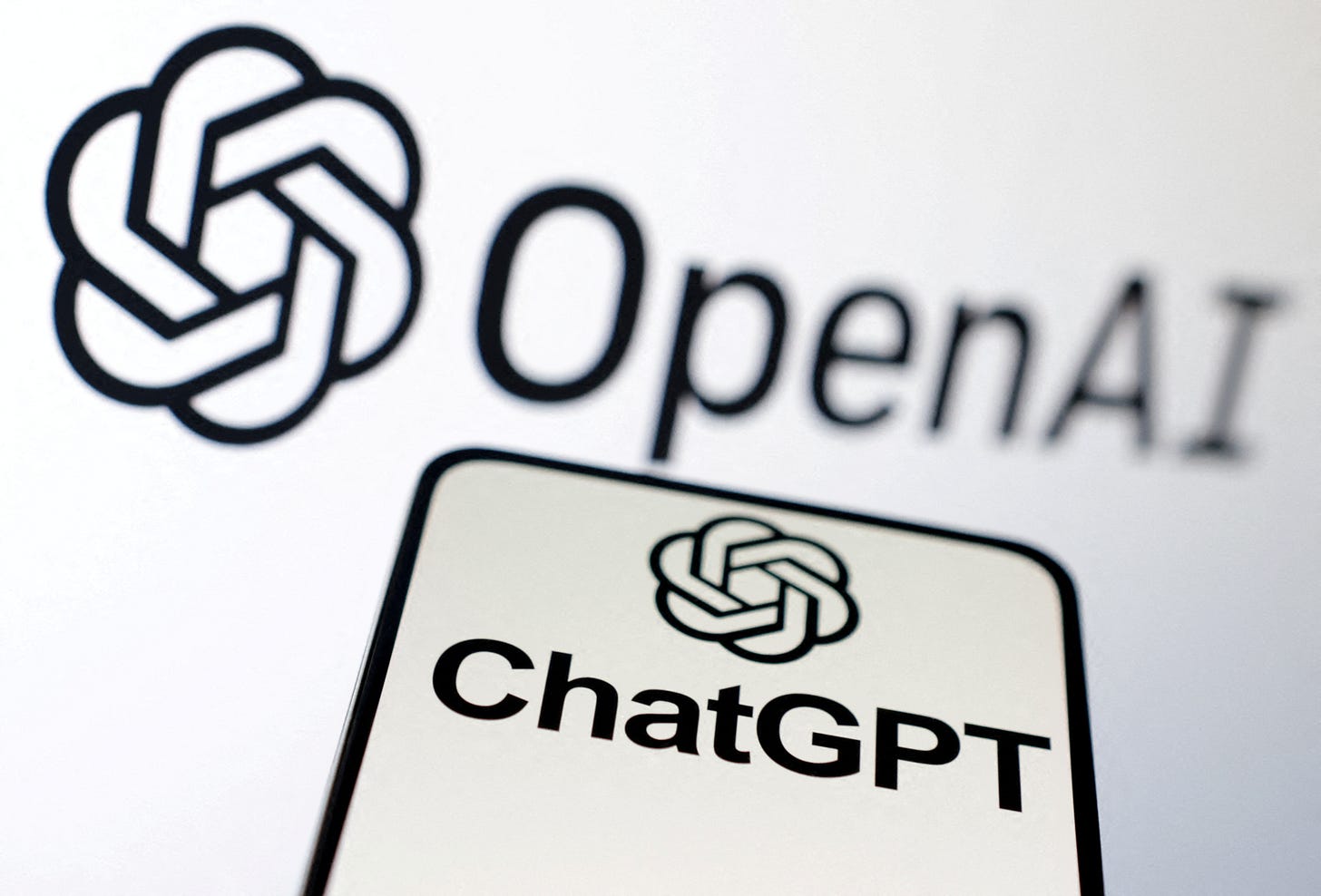🧐OpenAI to Block API Access to China Developers, ByteDance's 5nm AI Chip, and Baidu's ERNIE 4.0 Turbo
Weekly China AI News from June 24, 2024 to June 30, 2024
Hi, this is Tony! Welcome to this week’s issue of Recode China AI, a newsletter for China’s trending AI news and papers.
Three things to know
OpenAI warned developers in China last Monday that starting July 9 it will block API services from China. What’s the impact?
ByteDance denied reports of a partnership with Broadcom to develop an advanced 5-nm AI processor.
Baidu, iFlyTek, and Alibaba’s DingTalk unveiled new offerings in frontier models and AI solutions.
OpenAI's API Restrictions: Impact on China Developers
What’s New: OpenAI warned developers in China last Monday that starting July 9, it will block API services from unsupported countries and regions, including China.
This upcoming restriction has prompted swift reactions from major Chinese AI companies. On the same day, Baidu, Alibaba, Zhipu AI, SenseTime, and others announced easy migration services and free tokens for OpenAI API users.
Why OpenAI Restricts China: China has never been included in the list of countries and territories where OpenAI supports access to API services. Despite this, developers and enterprises in China have found ways to access OpenAI’s APIs through overseas proxy servers or Microsoft Azure. These methods have allowed them to build products, services, and train models with the help of GPT models.
OpenAI’s stricter measures could be part of ongoing efforts to curb misuse of its tools, such as generating malicious content, which has previously led to account bans from China and other countries.
On February 14, OpenAI revealed that it terminated five accounts from China, Russia, Iran, and North Korea in collaboration with Microsoft’s security department. These accounts were involved in phishing and generating malicious code.
On May 30, OpenAI published a 39-page report highlighting five new unsafe behaviors in the last three months, from Russia, China, Iran, and Israel. These behaviors included generating content for social platforms, fake replies, and spam emails.
OpenAI’s new measures also align with a proposed U.S. law that grants the White House authority to tighten exports of AI systems, including models that pose a national security threat to the U.S.
Now What: The impact on developers in China who access OpenAI’s APIs remains unclear. Not all developers in China received the warning, and some believe it won’t have a big impact as they can still rely on overseas proxies to access OpenAI APIs.
China’s generative AI regulation, effective since August last year, stipulates that generative AI services with public opinion/mobilization abilities must seek approval before going public. As of March, China’s Internet regulator CAC had approved 117 generative AI products, none of which are foreign-owned.
Some experts worry this could mark the beginning of a broader U.S.-China AI decoupling, with OpenAI under pressure to align with U.S. interests. This could accelerate China’s efforts to develop homegrown AI models.
ByteDance Denies Reports of Advanced AI Processor Collaboration with Broadcom
What’s New: ByteDance denied reports of a partnership with U.S. chip and software designer Broadcom to develop an advanced AI processor.
The report from Reuters said that ByteDance was working with Broadcom on a 5-nanometer application-specific integrated circuit (ASIC). compliant with U.S. export restrictions. ByteDance would manage the design phase while planning to outsource manufacturing to Taiwan’s TSMC.
How it Works: Based on the available information, ByteDance’s AI ASIC is likely designed for inference tasks rather than training purposes. It remains unclear whether the AI ASIC is designed for edge devices, such as ByteDance’s PICO virtual reality headsets, or for data centers running AI tasks within TikTok and other ByteDance applications. According to Bloomberg, Broadcom already supplies an older-generation 7nm AI processor for use in ByteDance’s data centers.
Why It Matters: The report comes amid a critical time when Chinese tech firms are grappling with limited access to advanced AI chips due to U.S. export controls. These restrictions have heightened competition for high-end semiconductors, which are essential for AI and supercomputing advancements.
Previously Reuters reported that Chinese AI chip firms are revising their designs to less advanced versions to circumvent U.S. export control and maintain production with TSMC.
Baidu’s ERNIE 4.0 Turbo, iFlyTek’s Spark v4.0, and DingTalk’s Partnerships with AI Startups
What's New: Last week, Baidu, iFlyTek, and Alibaba’s DingTalk unveiled new offerings in frontier models and AI solutions, as China’s generative AI industry continues to heat up.
ERNIE 4.0 Turbo: At its deep learning developer conference in Beijing, Baidu CTO Haifeng Wang introduced ERNIE 4.0 Turbo, an enhanced model based on ERNIE 4.0, featuring faster responses and superior performance. This new model will soon be available to users via web, app, and API. Wang also highlighted the growing popularity of ERNIE Bot, which has attracted 300 million users across various platforms, two months after it hit 200 million users. Additionally, the ERNIE API now handles 500 million daily queries.
Spark v4.0: On June 27, iFlyTek launched its latest foundation model, Spark V4.0. The company announced that Spark V4.0 ranks first in eight international benchmark tests, outperforming GPT-4 Turbo. Trained on Feixing-1, China’s first cluster of ten thousand AI chips from Huawei, Spark V4.0 excels in text generation, language understanding, and mathematical reasoning. It also features enhanced code and multimodal capabilities, approaching GPT-4 Turbo’s performance.
DingTalk’s Consortium: On June 26, Alibaba announced a strategic partnership with six leading Chinese AI start-ups—MiniMax, Moonshot AI, Orionstar, Baichuan, Zhipu AI, and 01.AI—to develop advanced generative AI features for its office communication platform, DingTalk. DingTalk said that by leveraging the strengths of various models, it can offer industry-specific and client-customized solutions, such as working with Moonshot AI to explore AI’s long-text processing and generative capabilities in educational scenarios.
Weekly News Roundup
Alibaba’s Qwen models lead in Hugging Face’s new open LLM leaderboard, which aims to challenge language models with diverse tasks. Some US competitors, including Meta's Llama, have shown regression in performance due to over-training on specific benchmarks. (SCMP)
StepFun (Jie Yue Xing Chen), founded by former Microsoft Global Vice President Jiang Daxin, continues to expand following the launch of its foundation models and application products. Reports indicate that the startup is currently raising a new funding round, valuing the company at $2 billion. Alibaba is once again reportedly involved in this strategic investment.
The Information reported that U.S. export restrictions on advanced AI chips are causing an impact on China’s AI industry, forcing companies like Kuaishou and Moonshot AI to ration the use of their AI models. Alibaba Cloud has ceased renting advanced Nvidia chips to regular customers, prioritizing allocation to major clients and Alibaba-backed AI startups. (The Information)
In an interview with the Financial Times, Zhang Hongjiang, the founder of the Beijing Academy of Artificial Intelligence (BAAI), emphasizes the critical need for AI governance to prevent existential risks, advocating for international collaboration to ensure AI systems remain under human control and do not deceive or harm humanity. (Financial Times)
Trending Research
Scaling Synthetic Data Creation with 1,000,000,000 Personas
Researchers from Tencent AI Lab in Seattle proposed a novel persona-driven data synthesis methodology utilizing an LLM and a curated collection of 1 billion diverse personas, each embodying unique perspectives. These personas, which represent approximately 13% of the global population, serve as distributed knowledge carriers, generating diverse and high-quality data across various domains such as mathematical problems, logical reasoning tasks, user prompts, knowledge-enriched texts, game NPCs, and programming functions.
OMG-LLaVA: Bridging Image-level, Object-level, Pixel-level Reasoning and Understanding
Researchers from Wuhan University, Skywork AI, S-Lab, and NTU introduced a framework named OMG-LLaVA. This framework aims to merge the capabilities of universal segmentation methods, which excel in pixel-level image and video understanding, with the reasoning abilities of large vision-language multimodal models.
Adam-mini: Use Fewer Learning Rates To Gain More
Researchers from the Chinese University of Hong Kong, Shenzhen, and Shenzhen Research Institute of Big Data introduced Adam-mini, an optimization algorithm designed to improve upon traditional Adam by using fewer learning rates to achieve better performance.







